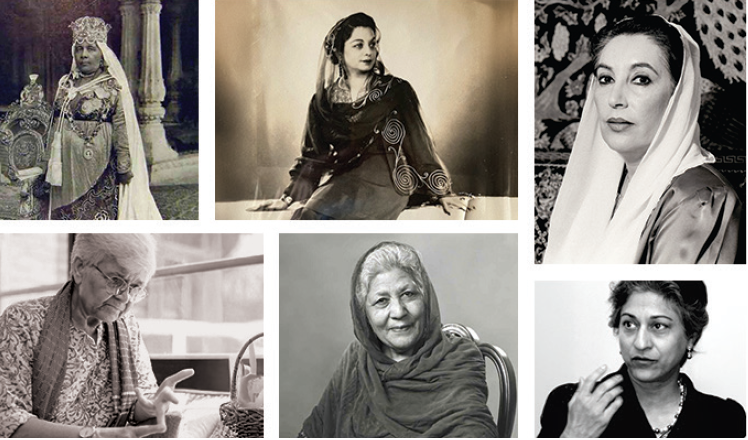March is a time to honour the extraordinary women who have shaped societies through resilience, intelligence, and leadership. South Asian countries like Pakistan, India, Afghanistan, and Iran, despite their rich history and cultural diversity, have often struggled with rigid mindsets and restrictive environments regarding women’s growth and empowerment. However, these challenges have given rise to remarkable women who defied societal norms and left a lasting impact. From politics and social activism to literature and humanitarian work, these women stood firm in the face of adversity, proving that strength knows no gender.
One of the earliest and most distinguished figures was Begum Sultan Jahan (1858–1930), the last ruling Begum of Bhopal (Reign from 1901 to 1926). She was not just a ceremonial ruler but an astute administrator who modernised governance, reformed public health, and championed women’s education. Her contributions were so significant that she became the first woman Chancellor of Aligarh Muslim University, breaking barriers in a male-dominated academic world. Unlike many rulers of her era, she ensured that institutions in health and education flourished beyond her reign, leaving a legacy of progressiveness in a conservative society.
Another pioneer of women’s leadership was Begum Ra’ana Liaquat Ali Khan (1905–1990), one of the driving forces behind Pakistan’s creation. She was the wife of Pakistan’s first Prime Minister, Liaquat Ali Khan, and the country’s first First Lady. However, she refused to be confined to the role of a political spouse. Taking Deskcharge of women’s empowerment, she founded the All Pakistan Women’s Association (APWA) and played a key role in integrating women into the workforce. A trained economist and social activist, she also made significant contributions to Pakistan’s foreign relations and later became the country’s first female governor, serving the province of Sindh.
The world of politics saw a significant shift when Benazir Bhutto (1953–2007) became the first female Prime Minister of Pakistan and the Muslim world. Her leadership was marked by resilience – having lost her father, Zulfikar Ali Bhutto, to political execution and spending years in exile, she returned to Pakistan with a vision for democracy. Her policies focused on economic reforms, healthcare, and women empowerment, but her political career was constantly tested by instability and opposition. She was tragically assassinated in 2007, but her legacy remains a beacon for women in leadership.
As literature became a medium of protest and social commentary, Bano Qudsia (1928–2017) emerged as one of Urdu’s most profound writers. A novelist, intellectual and playwright, her works explored themes of love, spirituality, and human psychology. Her novel Raja Gidh remains a masterpiece, delving into the moral decay of society. She was more than just a writer – she was a philosopher who used fiction to challenge societal norms and invoke critical thinking.
In the realm of law and human rights, Asma Jahangir (1952–2018) was a force to be reckoned with. A fearless lawyer and activist, she co-founded the Human Rights Commission of Pakistan and AGHS Legal Aid Cell. Jahangir was known for playing a prominent role in the Lawyers’ Movement and served as the United Nations Special Rapporteur on Freedom of Religion or Belief and as a trustee at the International Crisis Group. She defended the most marginalised communities, including minorities, women, and political prisoners. She stood against oppressive laws and military rule, facing arrests and threats, yet never backing down. Until her final days, she remained Pakistan’s loudest voice for justice.
While literature inspired minds, activism fueled change. Kamla Bhasin (1946–2021), an Indian feminist and social activist, dedicated her life to gender equality and human rights. A poet and scholar, she coined powerful slogans and songs that became rallying cries for women’s rights. Her slogan ‘Azaadi’ (Freedom) was not just a word but a movement, resonating across South Asia. Her activism transcended borders, making her a unifying force for women in both India and Pakistan.
These women, though from different fields, share one common trait: Women empowerment. They faced challenges, whether political, social, or cultural, and emerged stronger than before. As the world celebrates International Women’s Day, their stories serve as a poignant reminder that change is not a given – it is fought for.



